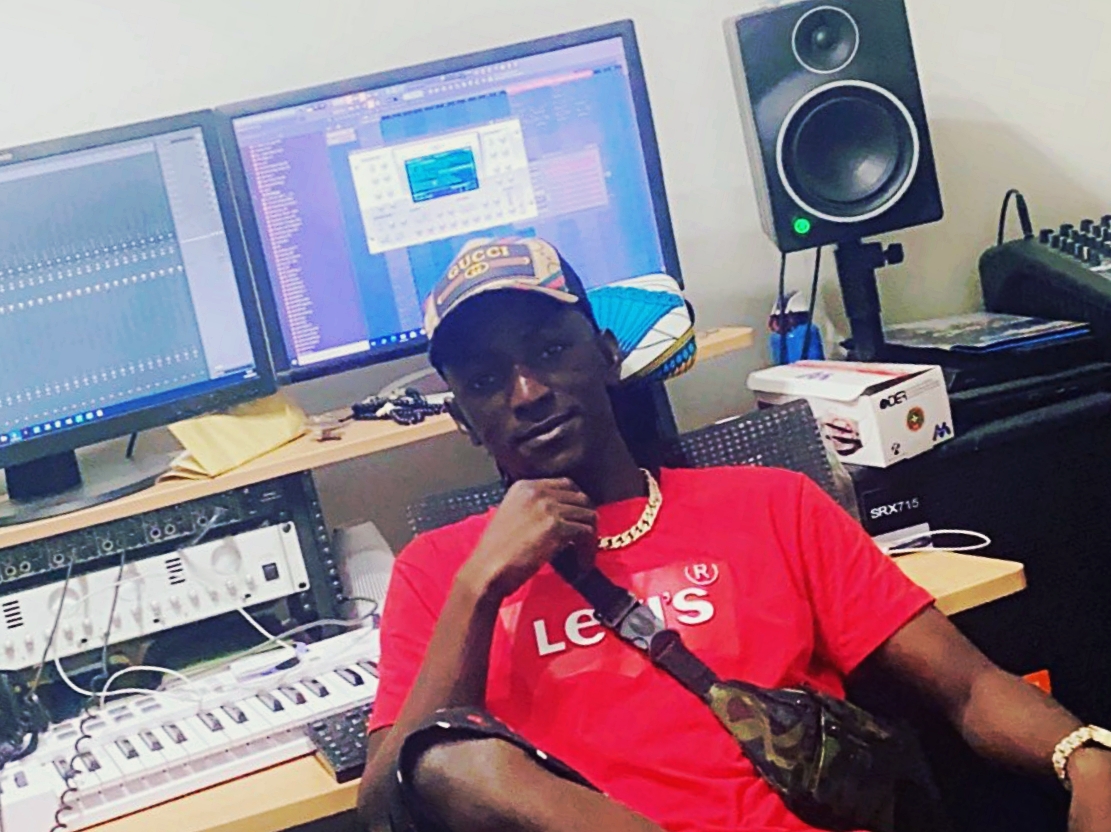Gambiaj.com – (Banjul, The Gambia) – Gambian Afropop star ST Da Gambian Dream, widely celebrated as Brikama Boyo, has offered an intimate and inspiring look into his musical journey, social activism, and aspirations during a feature interview on West Coast Radio’s flagship show Coffee Time with Peter Gomez. From humble beginnings in Brikama to headlining sold-out shows both at home and abroad, ST painted a vivid portrait of resilience, creativity, and purpose.
Speaking candidly, ST—real name Sana Singhateh—recounted how music first captivated him as a child in grade three, during weekly break-time performances at school. “I used to sing a lot of Born Africans and The Fugitives,” he recalled. “That was my favorite part of the week.”
Growing up immersed in traditional Mandinka culture and ceremonies, including singing at jujuoto fanang (circumcision rituals), ST was naturally drawn to fusing indigenous sounds with modern genres. “I’m versatile,” he explained. “I’ve done reggae, rap, Afro-Mandinka… I mix them up. But it was my culture that rooted me.”
Breaking Through in a Reggae Town and Going Global
Breaking into the music scene in Brikama—known more for its reggae roots than rap—posed challenges. “It was hard,” he said. “Everyone wanted to do reggae. Me coming in with rap was a new thing. And back then, it wasn’t fashionable to say you wanted to be a musician. People would tell you to find something better to do.”
Navigating this tough terrain without funds or support, ST hustled his way through. “I used to walk from Westfield to Traffic Light, pasting flyers for my shows,” he remembered. “No iTunes, no social media. Everything was physical.”
Now a household name with over 200,000 followers on Facebook alone, ST credits social media for revolutionizing his reach. “Today, I post an event and get 100,000 views in two days,” he said. “Back then, we had to sell physical copies door-to-door. It’s night and day.”
But with the digital era came a new enemy: piracy. “In The Gambia, it’s normal to send music via WhatsApp,” he noted. “One person buys the album, and a thousand others get it free. That’s why we’ve stopped hard copies—everything is digital now.”
Despite these challenges, ST has made waves internationally, performing in major European cities. “Germany, Stuttgart, Bremen—Gambians come out in numbers. They even travel from France or Austria just to support,” he said proudly.
Using Fame for a Purpose and Above Politics
While ST’s lyrical energy and stadium-filling performances made him a star, it’s his social consciousness that’s cementing his legacy. Through his ST Foundation for Community Development, he’s investing back into communities that nurtured him.
“I didn’t come from a wealthy background,” he said. “But music gave me everything. And I don’t want to just keep collecting. I want to give back.”
The foundation has supported students with tuition, fed the needy, contributed to hospitals, and taken on one of the country’s most pressing issues—environmental degradation. “Our streets are filled with plastic,” ST lamented. “We artists are role models. It’s our responsibility to raise awareness too.”
His song Waste Management tackles that head-on and has been praised for its hard-hitting message on plastic pollution. “We’ve partnered with the Brikama Area Council, did cleanups, and tree-planting campaigns—this Saturday we’re heading to Janjanbureh, and next week, Basse.”
When asked whether he supports a political party, ST was unequivocal: “No.” He believes artists must remain neutral to unite people. “My fans come from all parties. But at my shows, they all come together. That’s the power of music.”
He’s instead used his music to preach unity and social cohesion, with several songs advocating togetherness and tolerance. “When politics divides, we should remind people we’re one Gambia, one people.”
The Meaning of Success
Despite his fame, ST rejects material measures of success. “It’s not about how much is in your bank account,” he told Peter Gomez. “It’s about how many lives you touch, how much impact you make in your community.”
That philosophy underpins his work with hospitals, student support, and youth mentorship. “We don’t always have external funds. Sometimes it’s from my own pocket. From every concert, we allocate something to give back.”
Looking forward, ST plans to continue touring internationally and collaborating with other artists—like Senegalese legend Baaba Maal, with whom he released My People, a call for dialogue and pan-African unity.
As the interview with Peter Gomez wrapped up, tributes flooded in from fans and dignitaries alike, including GPA Managing Director Ousman Jobarteh and former ambassador Ebrima Bundu. “You stole the show at the Youssou N’Dour concert,” Bundu messaged. “You are our Gambian Boyo.”
True to form, ST responded humbly, “Shout out to all the fans. Your support is my motivation. Gambia to the world.”










